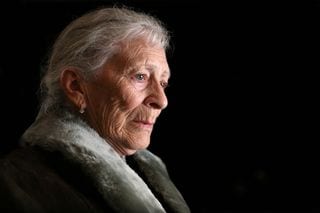 A horrific case of elder abuse in Georgia has shed a spotlight on elder abuse in the state, and as a result, the laws have become stricter and have expanded to include financial abuse of the elderly.
A horrific case of elder abuse in Georgia has shed a spotlight on elder abuse in the state, and as a result, the laws have become stricter and have expanded to include financial abuse of the elderly.
What is elder abuse? Today, we know that elder abuse is more than just physical abuse. It includes emotional, sexual and financial abuse, as well as neglect and self-neglect, as described by Georgia’s Division of Aging Services. The DAS also says that elder abuse is, in fact, one of the most underreported and undetected problems nationwide.
Recent reports of a terrible elder abuse case in Albany, led to the arrests of three people, said WABE, in “Elder Abuse: Warning Signs, How Georgia Took Action.” The victims, who were living in unlicensed personal care homes, were deprived of health care, shelter and necessary sustenance, as well as being exploited financially. They were subsequently moved to licensed facilities.
Elder abuse charges have risen in Georgia since 2010, according to a June article by the Atlanta Journal-Constitution. In fiscal year 2016, the Georgia Bureau of Investigation opened 47 cases of abuse, neglect and exploitation of at-risk adults. In 2017, the GBI opened 69 cases, a 46.8% change within one year.
The website for Georgia’s Division of Aging Services sets out warning signs for the different types of abuse. Abuse can include burns, bruises, and injuries that don’t seem related to a person’s medical condition. Emotional abuse includes verbal insults, slander, harassment, name-calling, intimidation, belittlement and not permitting a senior to be a part of a decision that he is able to make and in which he wants to have an input. Sexual abuse includes sexual harassment, sexual assault, rape, inappropriate touching and forcing someone to view sexually explicit materials.
With financial abuse and exploitation, a senior may be missing money or valuables, and there may be forged checks, unusual credit card charges and legal documents signed by an older adult, who may not have understood the circumstances.
Finally, there’s neglect and self-neglect which takes the form of bed sores, rashes, malnourishment, dehydration and unusual weight loss. These are signs a caregiver may be neglecting an older adult. Poor living conditions may also be a red flag. Self-neglect occurs when an older adult can’t take care of himself or herself. The warning signs include poor personal hygiene, soiled and ragged clothes, refusing to take medication and not fulfilling basic needs.
The state holds physicians and medical personnel accountable as mandated reporters who are responsible for recognizing potential elder abuse cases. They must report their concerns to authorities, as must the employees of financial institutions. Banks are where many senior citizens are being exploited financially. For example, a caregiver or a family member could coerce a senior to cash a check that he or she didn’t want to write.
The executive director of the Georgia Council on Aging, Kathy Floyd, reports a dramatic increase in elder abuse cases in recent years. Floyd says that a combination of more reporting, better reporting and more follow-up with law enforcement, plus an increasing number of seniors, is driving the increase in the cases of abuse now being reported. There is more training on elder abuse crimes in law enforcement, which now treats elder abuse cases like criminal matters, not civil matters. In an effort to expand the fight state-wide, the Georgia legislature has funded a position for an elder abuse prosecutor who will assist all 159 counties throughout the state.
Reference: WABE (January 31, 2018) “Elder Abuse: Warning Signs, How Georgia Took Action”
